The kids really are alright, photographer finds
For the last decade in my job as a photographer, I have traveled the country to take pictures of young people and listen to their stories.
I am confident when I tell you the most important thing I’ve learned:
They are going to be fine.
Yes, the kids stare at their phones. A lot. And yes, they watch mind-numbingly inane videos, and yes, they share way too much on social media.
They also survived a once-in-a-century pandemic, live with economic uncertainty and an especially nasty political environment — and they are growing up with the frightening and unpredictable effects of climate change. Let’s cut them some slack.
Through interviews and photoshoots with thousands of kids, many of them shown in my new book, “Force of Nature: A Celebration of Girls and Women Raising Their Voices,” I have been privileged to spend time with young people who are kind, inquisitive, ambitious, creative and desperate to make the world a better place.
Meet Zoe, who created a line of dolls with hair just like hers. At 10, she is the CEO of her own company. Lindsey, at 16, along with three classmates, started a lawsuit against the US Department of Education due to numerous changes to Title IX that limited protections of those reporting and protected the accused. And Sunny, 8, who is fighting for her right to play sports in her home state of Texas.
Perhaps the thing I find most inspiring about these kids is their commitment to inclusivity and diversity and simply being nice to each other. They are more open to differences in race, gender, sexuality, body type and background, and are actively working to create a more welcoming society. The hang-ups and prejudices of older generations are not theirs.
There is a tendency when talking about younger generations to mythologize what times were like “in our day.” The grass was greener, the sky was bluer, and movies cost $4.50.
However, “in our day,” we were also less accepting to kids who were different, less understanding of mental health issues, less attuned to the dangers of bullying, and we were more likely to acquiesce to preconceived gender roles. Children today care deeply about those issues and are actively working to make things better.
Witnessing the potential and hope embodied by the younger generation fills me with pride and not a small amount of awe. This generation has found their voices and is using them to create lasting change.
Elizabeth, who earned valedictorian of her college class as a nonspeaking autistic emphasizes how important it is to find and use our voice. Through the technology of her adaptive speaking device, she told her class: “God gave you a voice. Use it. And no, the irony of a nonspeaking autistic encouraging you to use your voice is not lost on me. Because if you can see the worth in me, then you can see the worth in everyone you meet.”
Here are some of the amazing kids I met, in their own words.
CG, 15
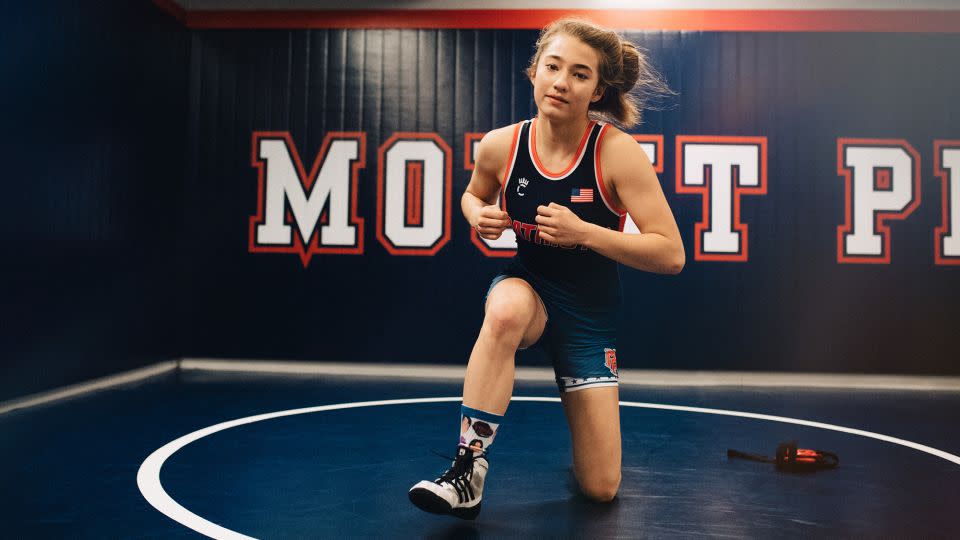
“My twin brother wrestled, and I asked my dad if I could do it too,” CG said. “I never felt like I couldn’t do something because I was a girl.”
Zoe, 10
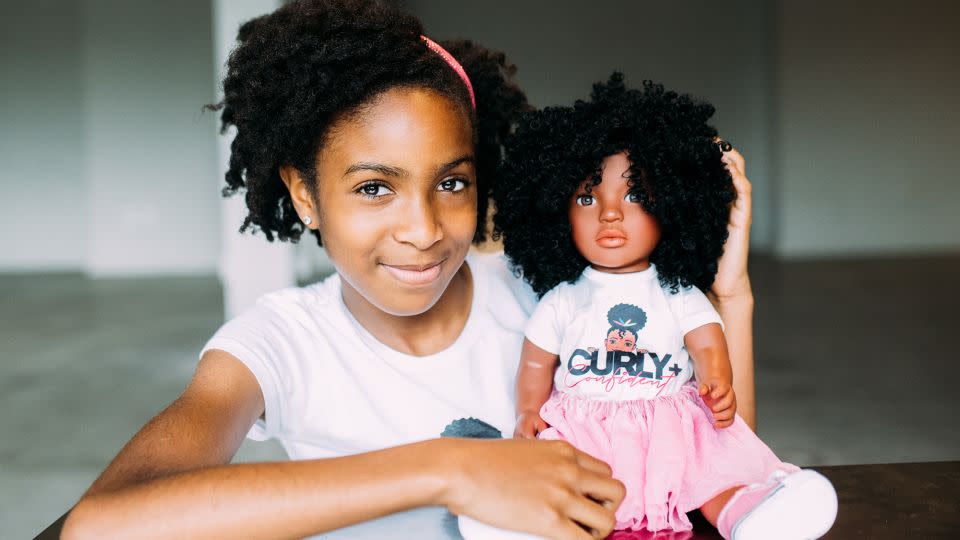
“I am on a mission to empower the next generation of curly and confident girls that will change the world,” Zoe said. “I make dolls with relatable skin tones and hairstyles for other girls that look like me.”
Sunny, 8
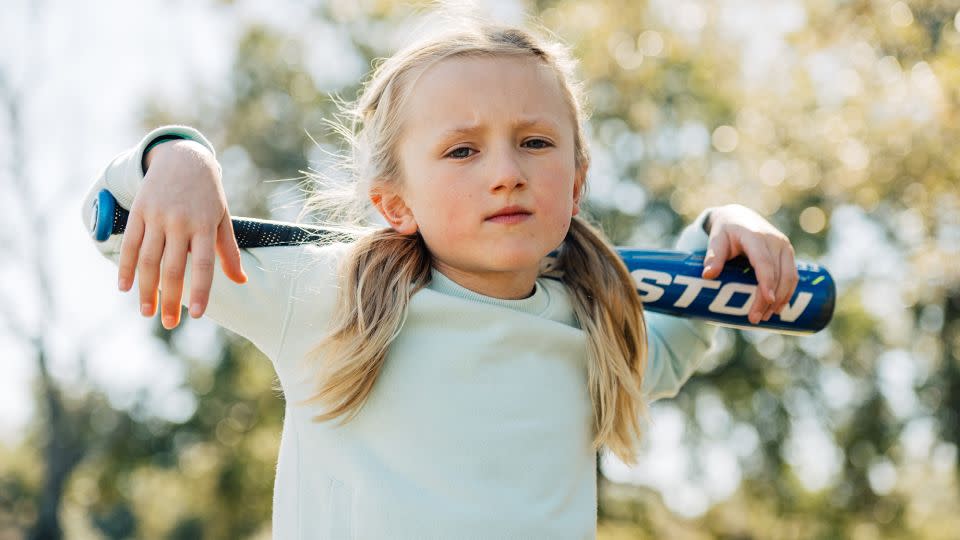
Sunny wants trans kids in the future not to have to fight like her.
“I like playing sports because I love making friends and running fast. When my mom told me about the anti-trans bills in Texas, I wanted to speak for myself. I will keep speaking out until my voice is heard. I’d be so sad if I couldn’t play softball anymore, but it’s not just about losing sports. It is about my right to live.”
Mistura, 16
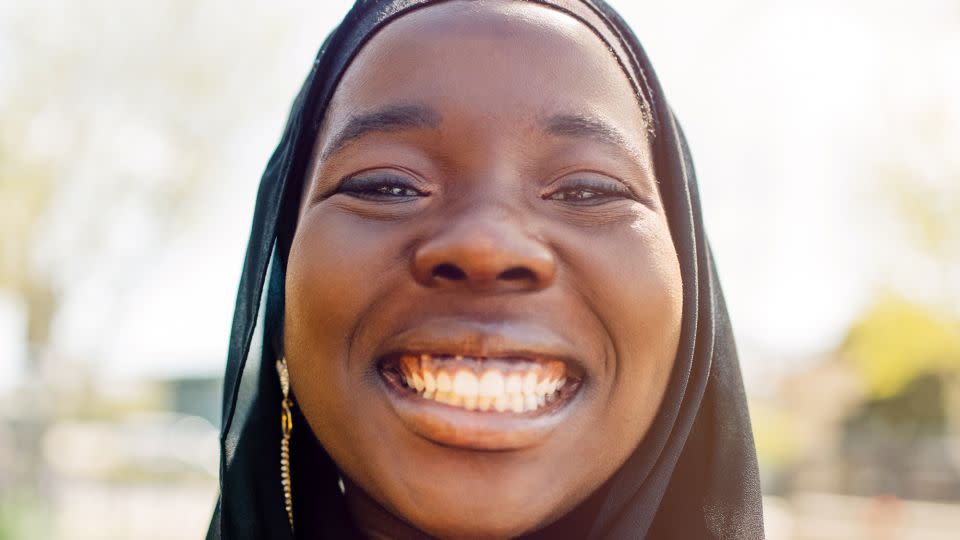
“I advocate for refugee and immigrant issues,” Mistura said. “I emigrated from Nigeria when I was six, so I know what it is like growing up in a place that is not home and then having to push yourself to call that place home. Speaking up about this issue brings me so much peace because I am constantly thinking about those who don’t have a voice like I do.”
Elizabeth, 25
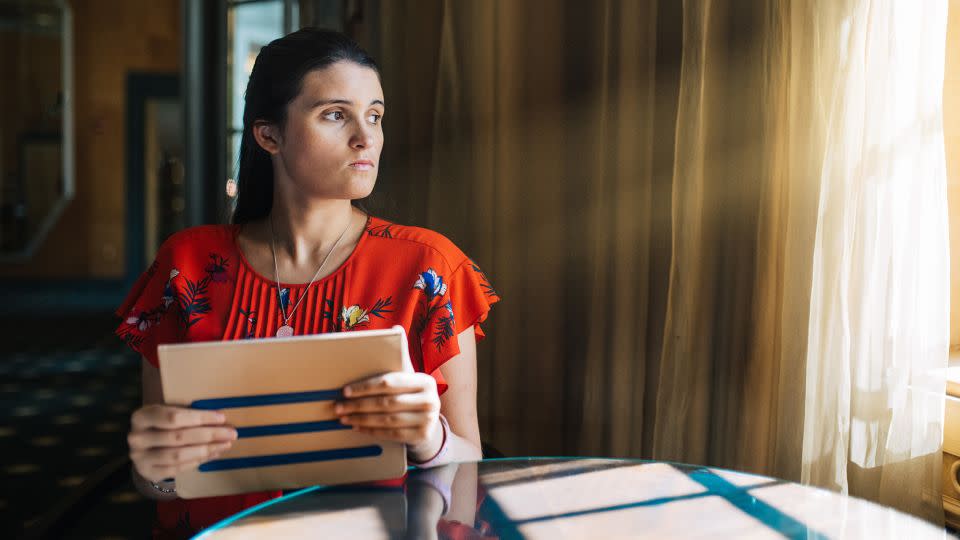
Elizabeth has a nonprofit organization that helps others like her find their voices.
“God gave you a voice. Use it. And no, the irony of a nonspeaking autistic encouraging you to use your voice is not lost on me. Because if you can see the worth in me, then you can see the worth in everyone you meet.”
Jai, 17
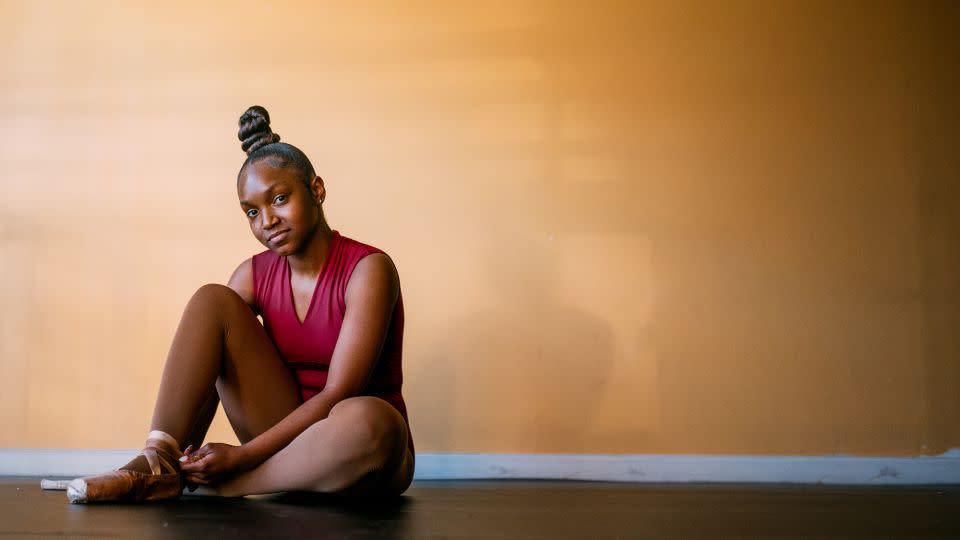
Jai is part of Brown Girls Do Ballet, which increases representation of underrepresented populations in ballet.
“When I dance, my movements tell a story: the story of a brown dancer, an artist, an advocate, and a voice for the voiceless. My tights match my brown skin tone, which represents my past, my present, and my bright future.”
Regan, 18
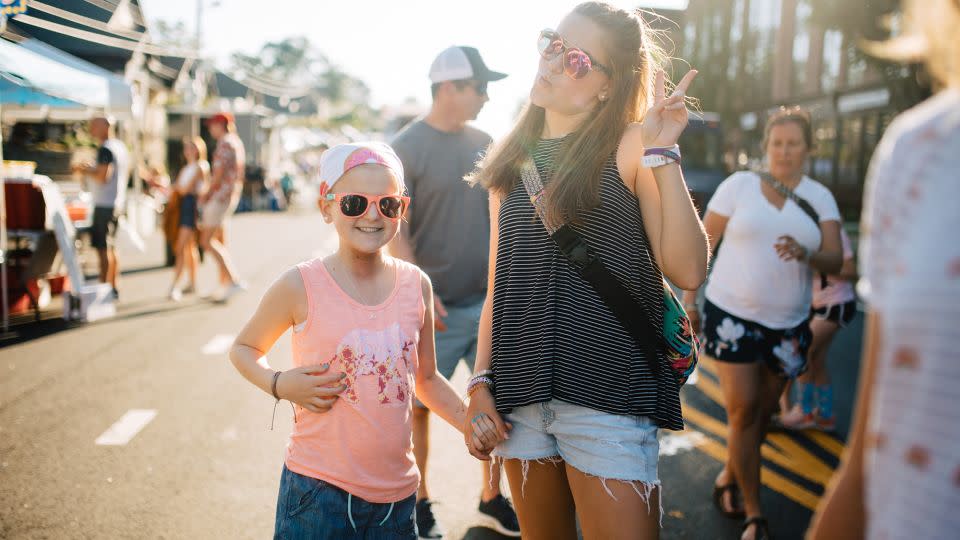
Regan lost her sister to cancer and, in the wake of that loss, made it her mission to bring light to those going through the same battle as her sister, Emerson.
“When I was 15, I lost my sister - my best friend to cancer. Ever since that day, my mission has been to bring light to people about childhood cancer. I believe the only way to bring attention to something is to use your voice. Through Smasherson, the foundation that my family created to honor my sister, I am able to tell her story to so many people and help them to understand how important it is to support these causes.”
Lindsey, 18
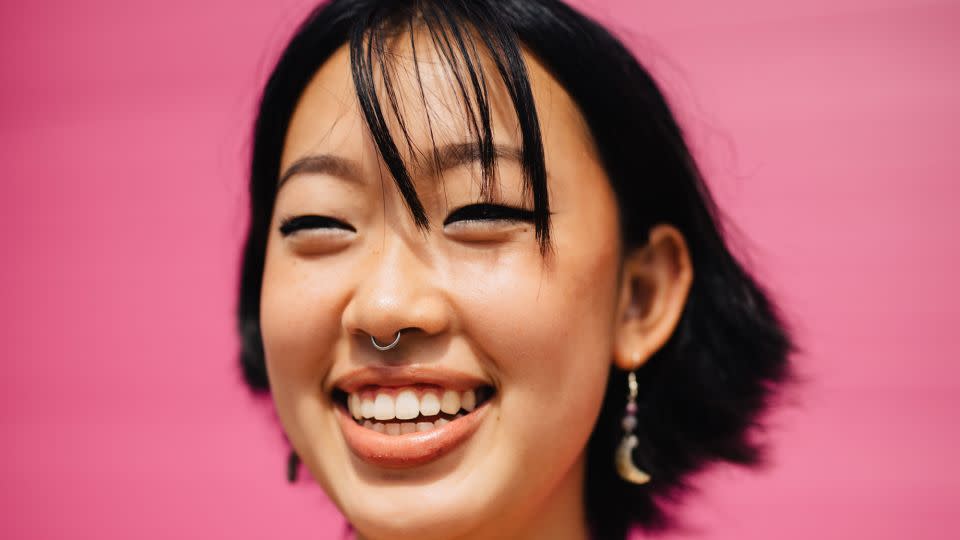
Along with three classmates, Lindsey started a lawsuit against the US Department of Education due to numerous additions to Title IX under President Donald Trump that they say limited protections of those reporting Title IX violations and protected the accused.
“What could a group of high schoolers possibly do about a federal law? Turns out, we can use the power of the law ourselves. Although the lawsuit did not succeed, the Biden administration announced an executive order that overturned the regulations the same day our lawsuit went public.”
Sydney, 10
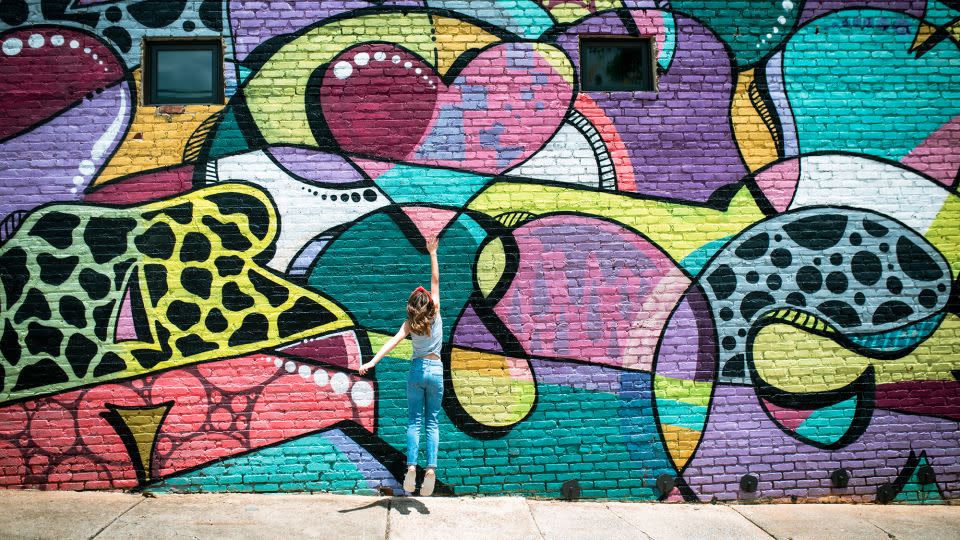
Sydney endeavors to make her school a safe and bully-free zone.
“I was elected a Love Leader at my school. I try to let people know to stay strong. Hurt people hurt people. It’s not you, it’s them. There’s been some bullying at my school, and it is not okay. It’s important to take words seriously. I want to make school a place where everyone can feel welcomed, safe and comfortable.”
For more CNN news and newsletters create an account at CNN.com